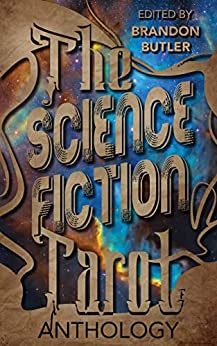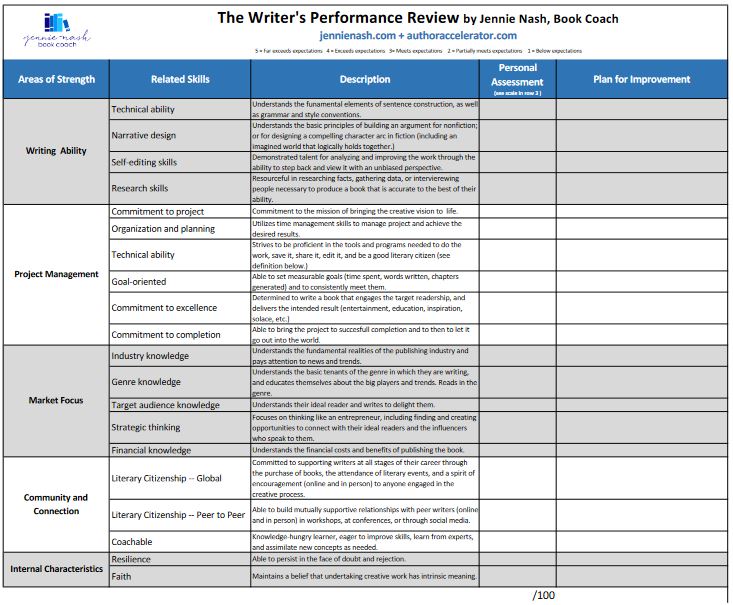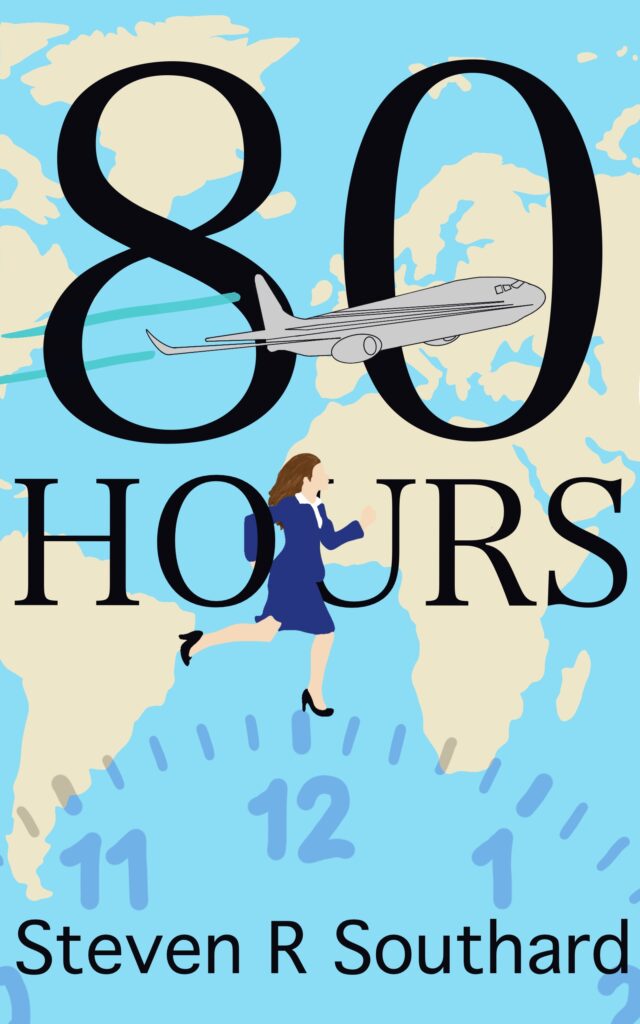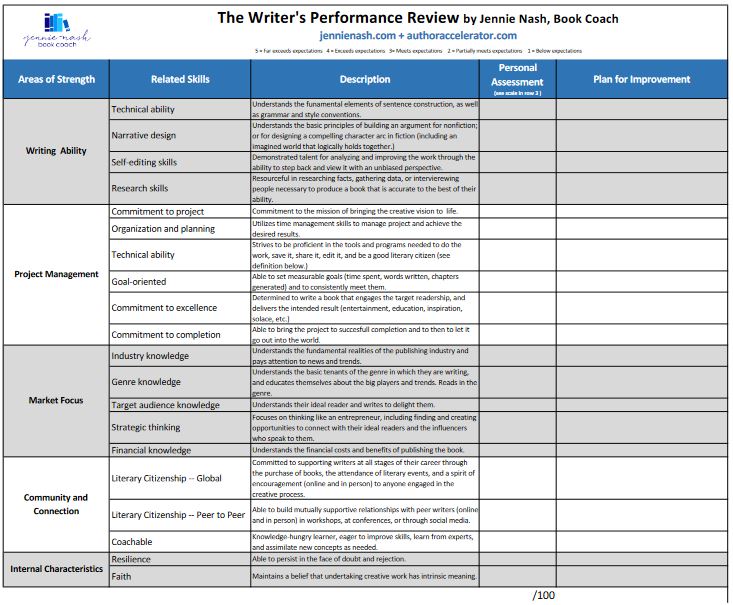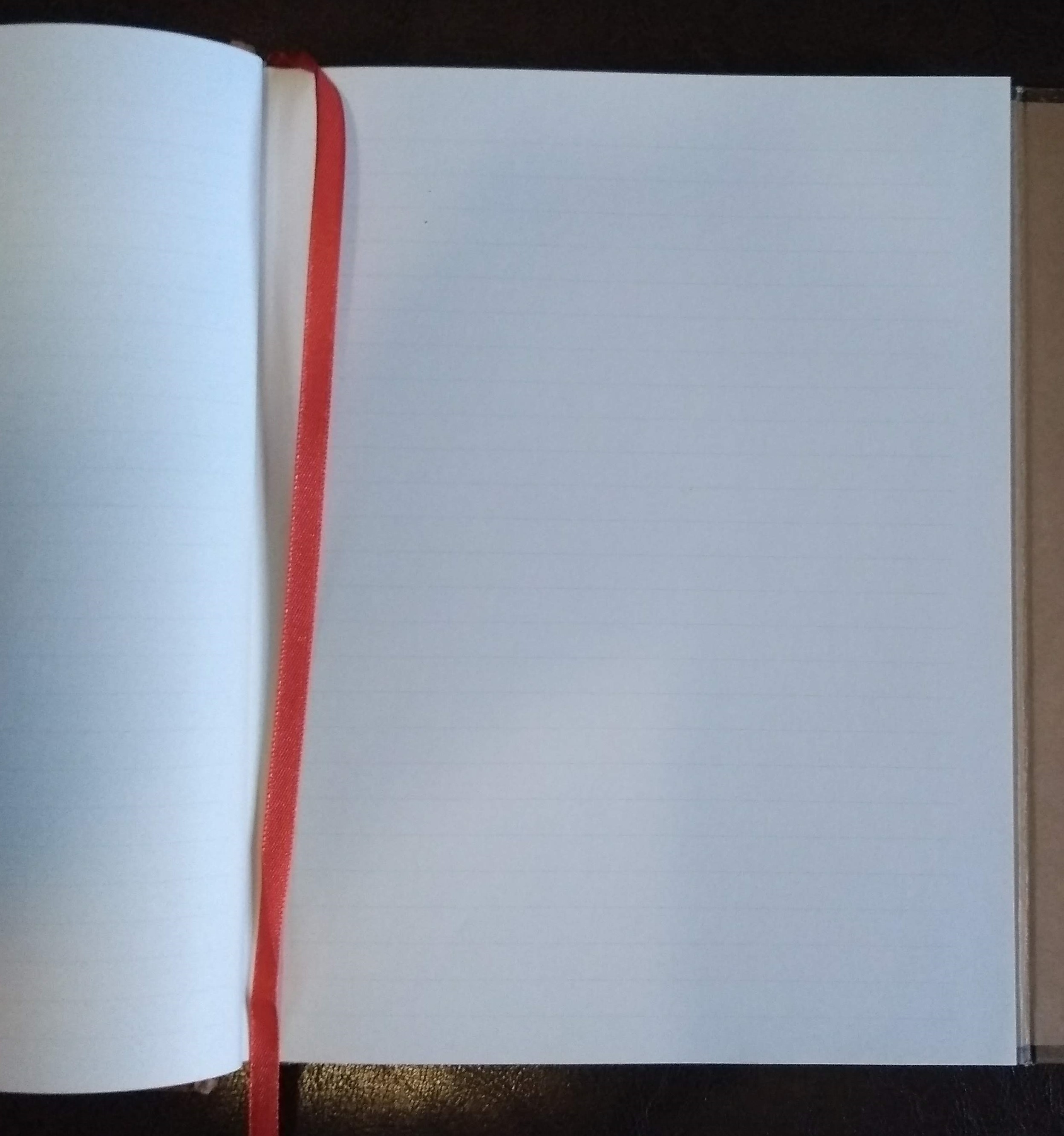Few people look forward to performance reviews, and I’m not one of them. As an upside, I’m my own boss. Downside—I’m my own harshest critic.
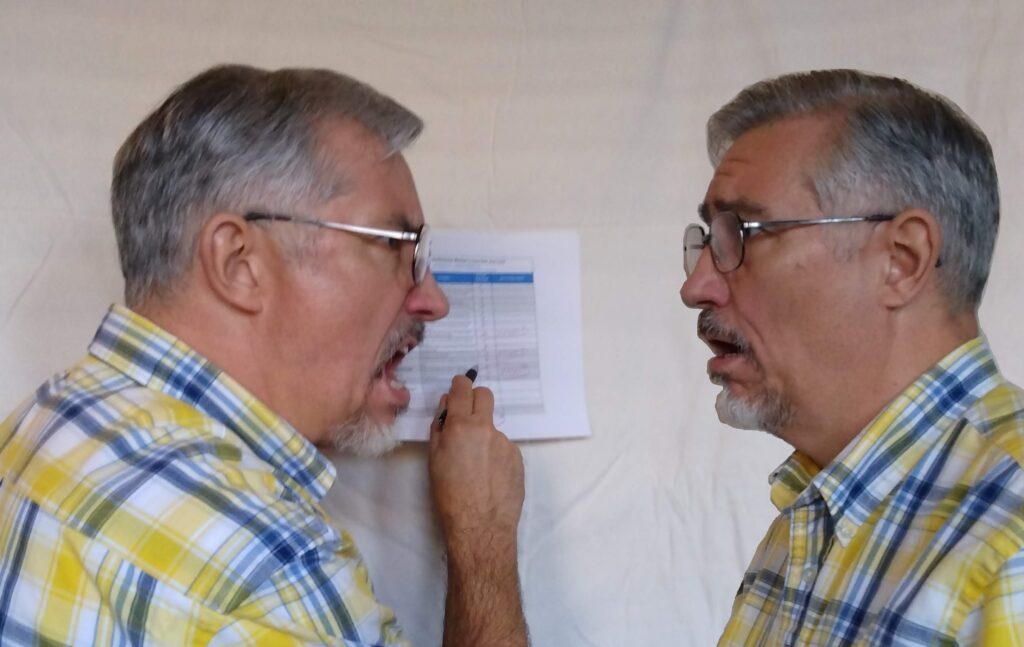
Time to assess my writing for 2023. As in past years, I’m using The Writer’s Performance Review scorecard by book coach, Jennie Nash.
This year, I examined the rating descriptions in greater detail and it resulted in a lower score than in previous years. For each attribute, you rank from one to five. One = below expectations. Two = partially meets expectations. Three = meets expectations. Four = exceeds expectations. Five = far exceeds expectations.
It’s a comparison of actual performance during the year to expected performance. Based on that, a score of three isn’t bad. It means you’re doing what you expected to do. If you scored three in all twenty attributes, you’d get 60.
As my assessment turned out, I did get a 60. Mostly 3s, but also one 5, four 4s, four 2s, and one 1.
That 1 rating applies to “strategic thinking,” and I’ll do more in 2024 to discover the influencers of my genre by checking out podcasts and Youtube videos by reviewers and authors.
I’ve also committed to some corrective actions in the areas rated as 2:
- Organization and Planning – I’ll use the Pomodoro method to manage my time.
- Goal Orientation – I’ll follow the Stephen Covey method of setting large goals, then breaking them down into smaller goals, and weekly tasks.
- Genre Knowledge – I’ll read more books in my genre.
- Target Audience Knowledge – I’ll spend some time listing characteristics of my ‘ideal reader.’ That’s how I get to know my fictional characters better, so it might work for readers.
As for writing accomplishments this year:
- My story “Turned Off” got published in The Science Fiction Tarot.
- I finished the second draft of one novel, and
- I made good progress on the first draft of another novel
- I completed another round of edits on my upcoming short story collection, The Seastead Chronicles, and am hoping for its publication in 2024.
Most employers and employees keep annual performance assessments private. As both employer and employee, I display mine to the world as a service to other writers.
May all of us who scribble words have a successful 2024. That’s the New Year’s wish of—
Poseidon’s Scribe


